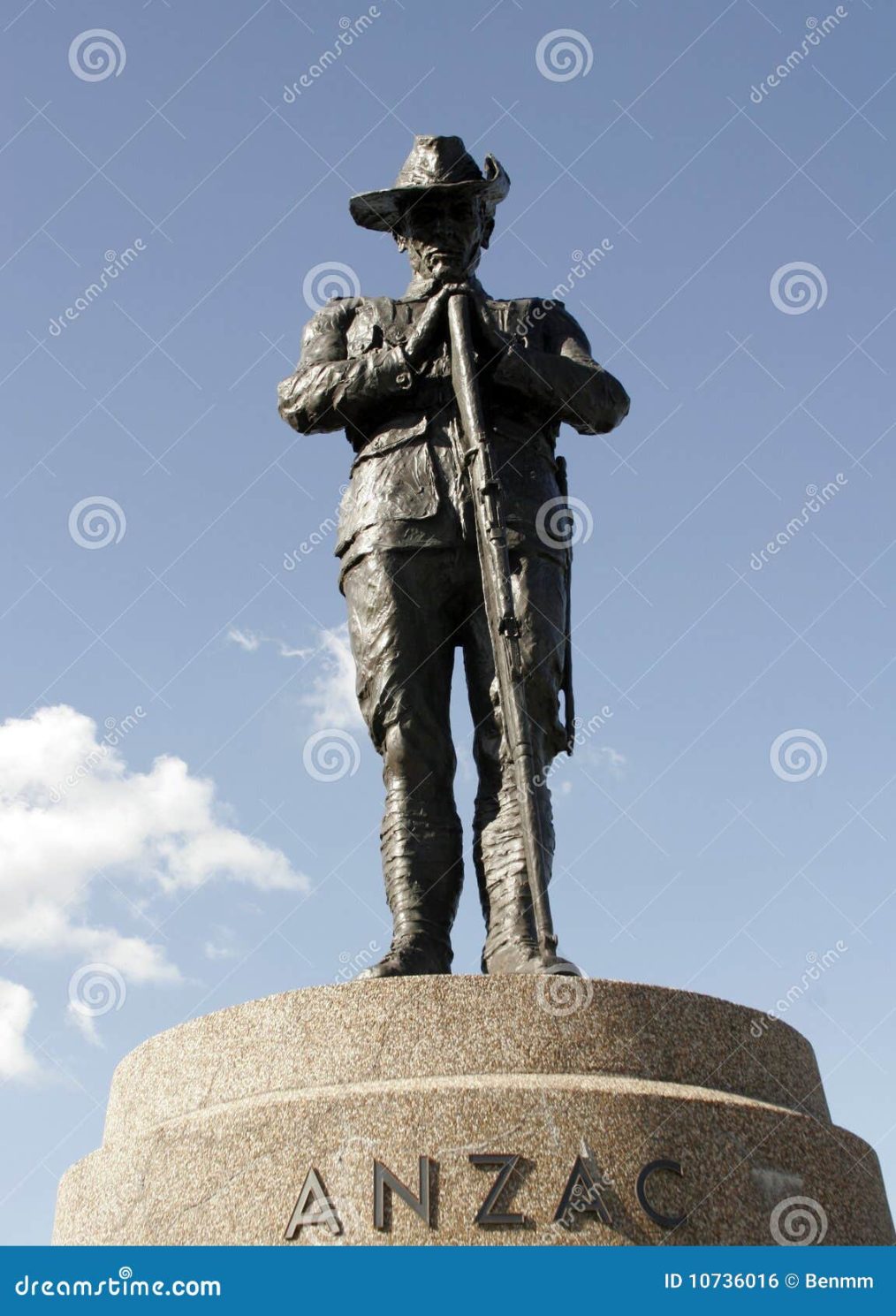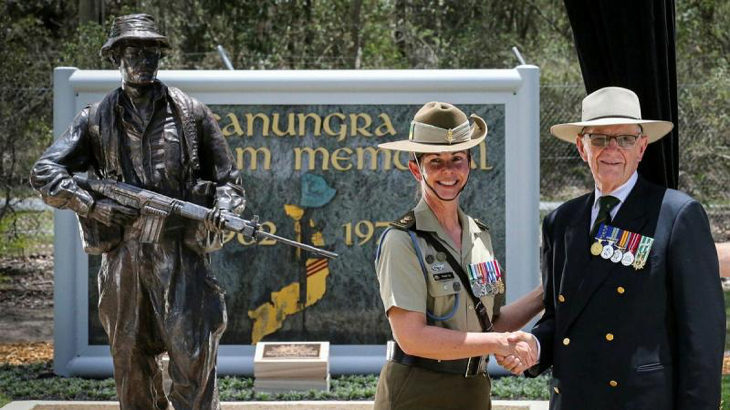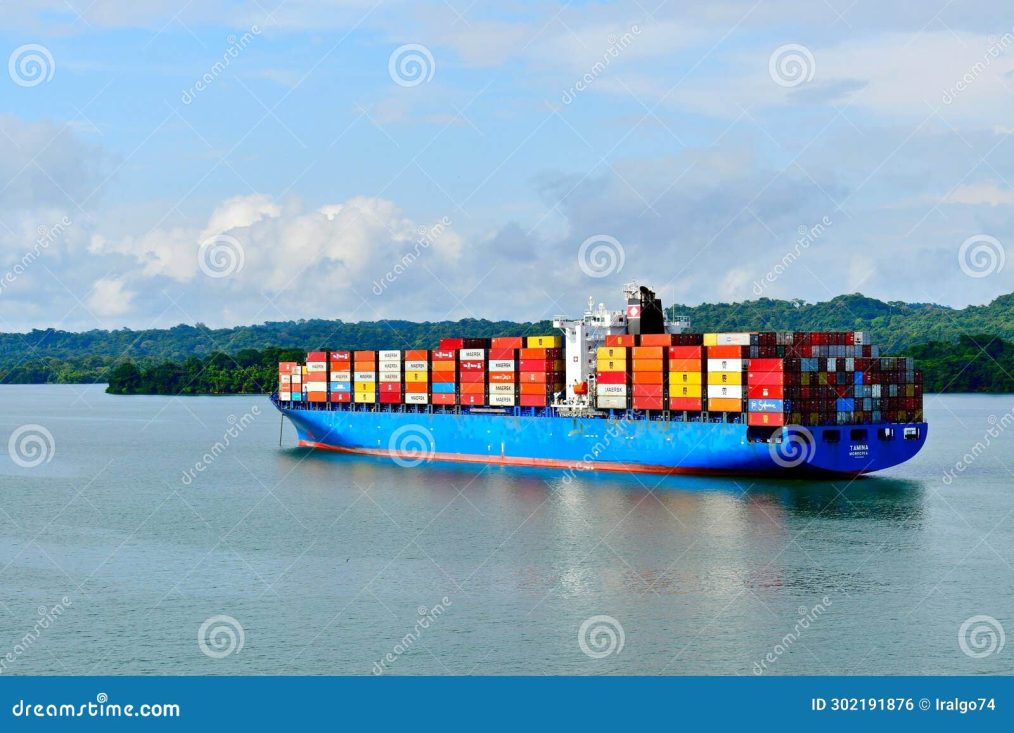Lieutenant Colonel Wendy Say with veteran and founder of the Kokoda Youth Foundation Doug Henderson in front of the new Canungra Vietnam Memorial at Kokoda Barracks in Queensland. Photos: Private Andrew Shaw
After two years of dedicated volunteer work and community collaboration, the new Canungra Vietnam Memorial opened to veterans, families and the local community with easy access.
The memorial was previously located within the confines of Kokoda Barracks in Canungra, where Australian soldiers trained before deploying to the Vietnam War.
The memorial has moved to the front gates of the barracks to allow access to the wider public.
Veteran volunteers and community members constructed the original memorial in 2000.
A veteran of the 6th Battalion, The Royal Australian Regiment, Doug Henderson, founder of the Kokoda Youth Foundation, said a collaborative committee supported the project.
“The Land Warfare Centre, once known as the Jungle Training Centre, holds deep-seated memories for us Vietnam veterans. This project pays tribute to the sacrifices and resilience of everyone tied to the Vietnam War, recognising their sheer courage and unwavering strength,” he said.
The new memorial site displays the iconic Long Tan Cross. At the heart of the site stands a life-sized bronze statue of a Vietnam soldier, an addition funded by the Commonwealth Government’s Saluting Their Service grant program.
Reverend Richard Brown, also a former member of 6RAR and a Vietnam veteran, said the site would play a role in helping future generations understand the importance of commemorations at the memorial.
Reverend Brown said the memorial honoured those brave soldiers who came before us and would serve as a place of reflection for those who continued to serve.
He spoke about his memories of his time at 6RAR.
“Memories of the bus running early in the morning with the mist; the great joy of huffing and puffing up Heartbreak Hill,” Reverend Brown said.
“Then to the grenade assault range, diving from pit to pit, observing the target, prying the grenade on to the next one. The joys of the battle inoculation range going underneath the barbed wire with smoke and Beckles machine gun pouring over.
“And of course, we were invited to share in the obstacle course, the joys of the bear pit – straggling out of there – running over the bit of barbed wire, then the joy of jumping into the beautiful cool water of the Kuma River.”
Lieutenant Colonel Wendy Say, of Kokoda Barracks, said the memorial was the result of community coming together.
“Kokoda Barracks and the Kokoda Youth Foundation have established a wonderful partnership over the years,” Lieutenant Colonel Say said.
“I am so very thankful for the amazing work of the Kokoda Youth Foundation – not just in relation to what they have achieved with the memorial, but also what they do on a daily basis to support Australia’s youth.”










